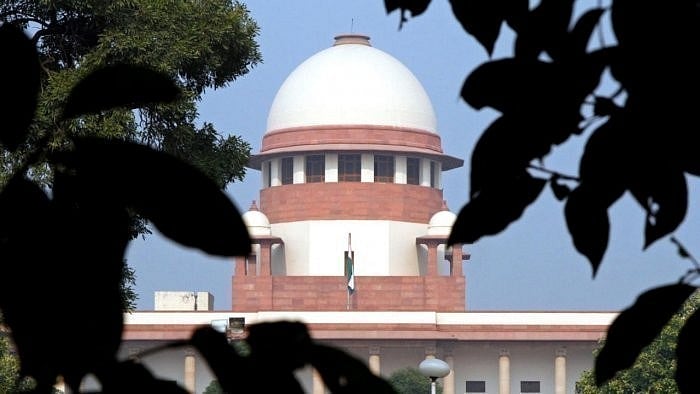
The Supreme Court of India.
Credit: PTI File Photo
New Delhi: The Supreme Court on Tuesday pulled up the Uttar Pradesh government for "hijacking" the litigation between two private parties over management of the famous Shri Banke Bihari temple in Vrindavan.
A bench of Justices B V Nagarathna and Satish Chandra Sharma said if the state government starts entering into a private dispute between parties it will result in breakdown of rule of law.
"Was a state a party to the proceedings? In what capacity has the state entered the dispute? If states start entering into a private dispute between parties it will breakdown of rule of law. You can't hijack the litigation. In a private litigation between two parties, state filing an impleadment application and hijacking it is not permissible," the bench said.
The court was hearing a plea seeking the modification of its order approving the Uttar Pradesh government's proposed redevelopment scheme for the Shri Banke Bihari temple in Mathura.
In its judgment on May 15, 2025, the SC's bench of Justices Bela M Trivedi (since retired) and Sharma had approved the Uttar Pradesh government's move to develop a corridor around Shri Banke Bihari ji temple at Mathura and utilise Rs 500 crore from the temple trust fund for the purpose.
Senior advocate Kapil Sibal, appearing for petitioner Devendra Nath submitted that fund of Rs 300 crore has been given to the Uttar Pradesh government without making us the party.
"How can you by an order in another petition direct that earning of a private temple be handed over to the state," Sibal asked.
The counsel appearing for the Uttar Pradesh government informed the apex court that the state has formed a trust to manage the famous temple and oversee work on the proposed corridor.
Entire money would vest with the trust not with the government by virtue of the enactment, he said.
The top court directed the counsel for the state government to give a copy of the ordinance passed with regard to the trust to the petitioner and directed the concerned principal secretary to file an affidavit by July 29.
On May 19, an application was filed, contending that the implementation of the proposed redevelopment project was practically unfeasible, and any attempt for redevelopment of the temple premises without the involvement and inputs of those who were historically and operationally associated with the temple's functioning was likely to result in administrative chaos.
"Such redevelopment risks altering the essential religious and cultural character of the temple and its surrounding ecosystem, which holds deep historical and devotional significance," the plea claimed.
The applicant claimed he was a "lineal descendant" of the temple's founder Swami Hari Das Goswami and his family had been managing the affairs of the sacred temple for the last 500 years.
He said he was actively involved in managing the temple's daily religious and administrative affairs.
On May 15, the apex court had modified the Allahabad High Court's order of November 8, 2023, which accepted the state's ambitious scheme but refused to permit the state to utilise the temple funds.
